Brake Pad Replacement in Lexington, KY
- CELEBRATING 46 YEARS
- Family Owned & Operated
- All Makes & Models
- CELEBRATING 46 YEARS
- Family Owned & Operated
- All Makes & Models
Contact Us
Brake Pad Replacement - Stop Safely Every Time
Jake called us last Thursday in a panic. “My brakes are making this horrible screeching sound,” he said. “Like nails on a chalkboard.” When he brought his truck in, we found his brake pads were completely worn down to the metal backing plates. He was literally stopping with metal on metal contact – dangerous and expensive. After replacing his brake pads and resurfacing his rotors, Jake learned why paying attention to brake warning signs saves both money and lives.
Our Services
Contact Us
What Your Neighbors Are Saying About Us
They truly care about offering the right service and doing it at a very fair price. They were patient to explain everything in detail and had my car fixed same day. Their honesty and great service will keep me coming back for all of my car needs. A solid repair shop that will be my first choice going forward.
Could not be happier with the recent service I received at Powers Transmissions! David and his team are very knowledgeable and pleasant to work with. It’s nice to have the peace of mind knowing everything is done correctly. Very happy with the experience and highly recommend!
What stood out to me was their willingness to listen to my concerns over the phone and provide an accurate estimate for the repair timeline. Unlike some places, they didn't try to deceive me just to get me in the door. You can genuinely sense their passion for their work and helping customers.
Wow, excellent job. My HUMMER H2 runs so good. Now the Transmission can pull a barn down I have known Mr. powers for years. He is a stand up guy if he says something you can take it to the bank. I'm very happy.
Powers Transmissions took over and had my car done in less than a week. They worked with my warranty company and kept me updated on everything that was happening. Completely professional and competent unlike the first place I went! Thank you for all your help!
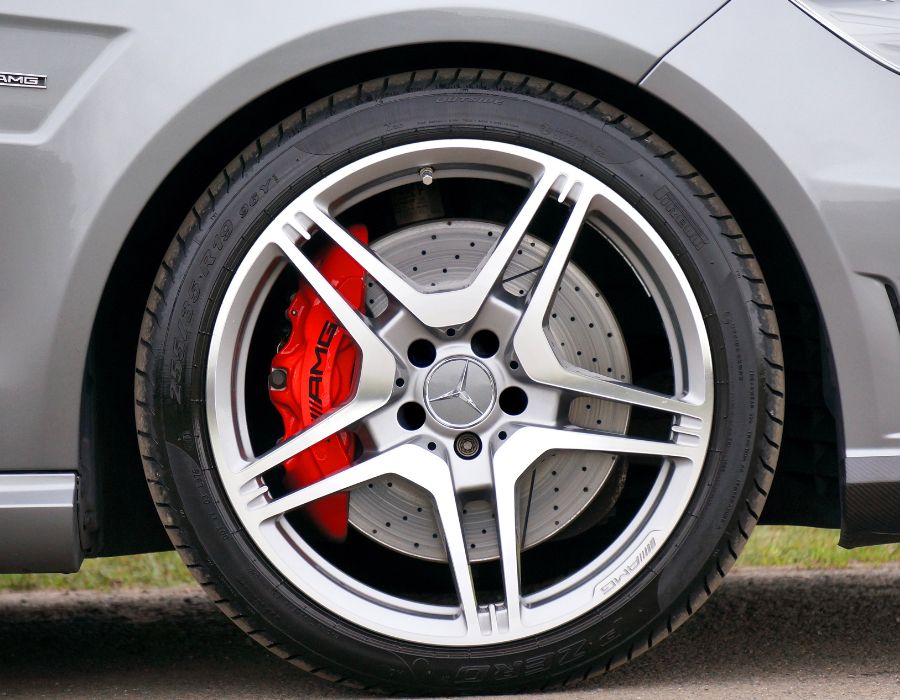
How Brake Pads Work
Your brake pads are the heroes of your car’s stopping system. When you press the brake pedal, hydraulic pressure pushes the brake pads against the rotors (those metal discs behind your wheels). The friction between the pads and rotors is what slows your car down.
Brake pads are designed to wear down over time – that’s their job. They’re made from materials that can handle extreme heat and pressure while providing consistent stopping power. When they get too thin, they need replacement before they damage other parts of your brake system.
Warning Signs Your Brake Pads Need Replacement
- Squealing or Screeching Noises: Most brake pads have built-in wear indicators – small metal tabs that make noise when the pads get thin. If you hear squealing when you brake, don’t ignore it. That’s your car telling you it needs attention.
- Grinding Sounds: If you hear grinding, you’ve waited too long. This means the pad material is gone and metal is rubbing against metal. You’re now looking at rotor replacement or resurfacing on top of new pads.
- Vibrating Brake Pedal: If your brake pedal pulses or vibrates when you stop, your rotors might be warped from overheating. This often happens when brake pads wear too thin.
- Pulling to One Side: If your car pulls left or right when braking, you might have uneven pad wear or a brake system problem that needs immediate attention.
- Longer Stopping Distances: If you notice it takes more distance to stop than usual, your brake pads might be losing their effectiveness.
How Long Do Brake Pads Last?
This is like asking how long a pair of shoes lasts – it depends on how you use them. City drivers who deal with lots of stop-and-go traffic wear through brake pads faster than highway drivers. Mountain driving with steep hills is particularly hard on brakes.
Generally, brake pads last between 25,000 and 70,000 miles. Front brake pads usually wear faster than rear ones because they do most of the stopping work. Driving habits make a huge difference. Gentle, gradual stops extend pad life, while hard, sudden stops wear them down quickly.
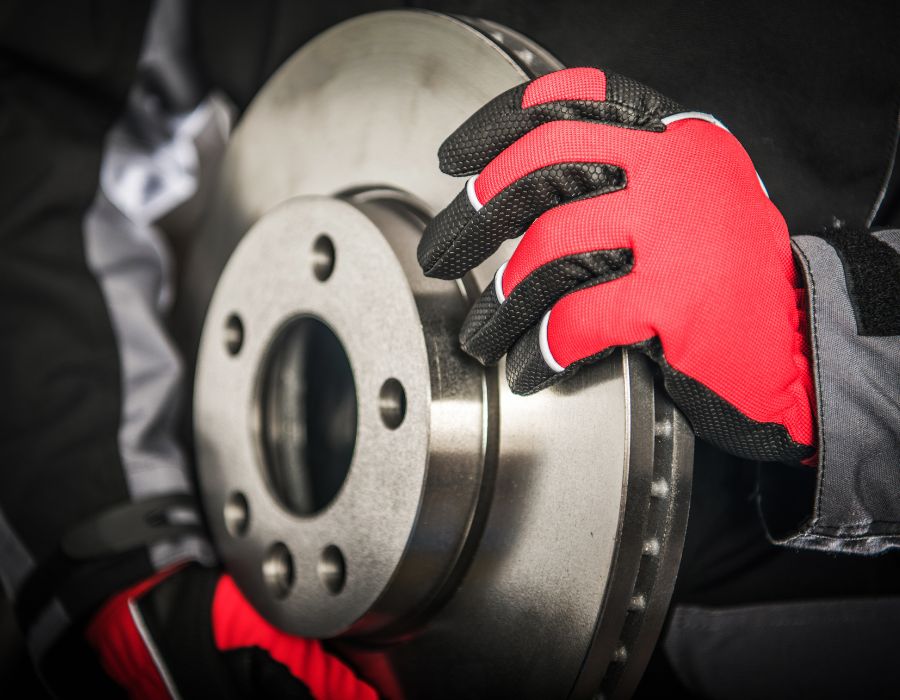
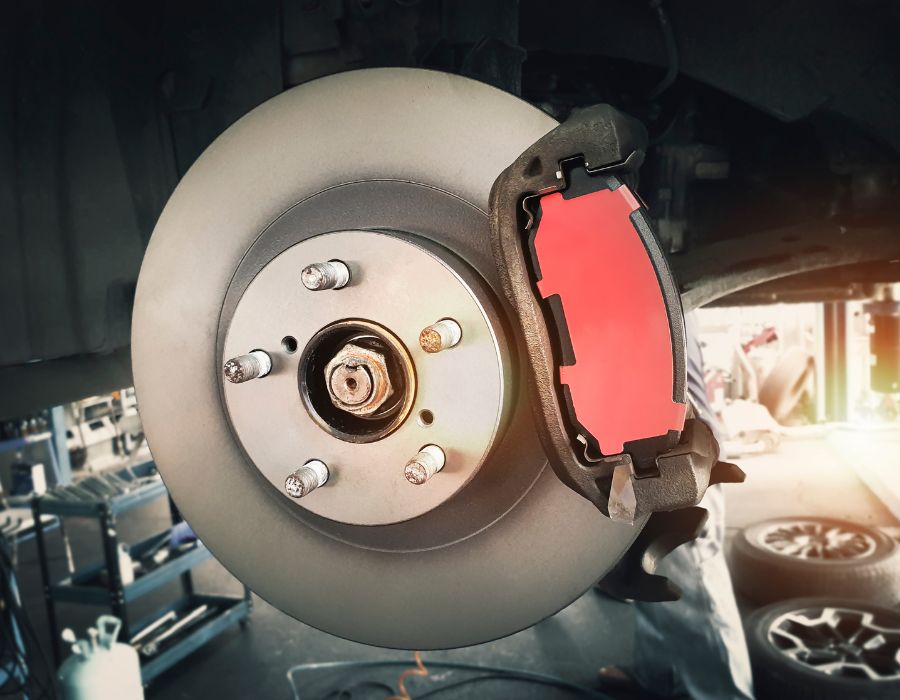
Different Types of Brake Pads
- Organic Pads: Made from materials like rubber, carbon, and Kevlar. They’re quiet and gentle on rotors but don’t last as long under heavy use.
- Semi-Metallic Pads: Contain metal fibers mixed with other materials. They handle heat better and last longer but can be noisier and harder on rotors.
- Ceramic Pads: The premium option that runs quiet, produces less dust, and lasts longer. They cost more upfront but often save money over time.
- Performance Pads: Designed for high-performance driving or heavy-duty use. These handle extreme heat but might be overkill for normal driving.
Our Brake Pad Replacement Process
When you bring your car in for brake pad replacement, our certified technicians don’t just slap new pads on and call it done. Here’s what we do:
- Complete Brake Inspection: We check the entire brake system – pads, rotors, calipers, brake lines, and fluid levels. Sometimes what sounds like a brake pad problem is actually something else.
- Rotor Assessment: We measure rotor thickness and check for warping or damage. If your rotors are within specifications, we clean and resurface them. If they’re too thin or damaged, we recommend replacement.
- Caliper Service: We inspect brake calipers for proper operation and leaks. Sticky calipers can cause uneven pad wear and reduce braking effectiveness.
- Brake Fluid Check: Old brake fluid absorbs moisture and reduces braking performance. We check fluid color and consistency and recommend replacement if needed.
- Road Test: After installation, we test drive your vehicle to verify proper operation and make sure everything feels right.
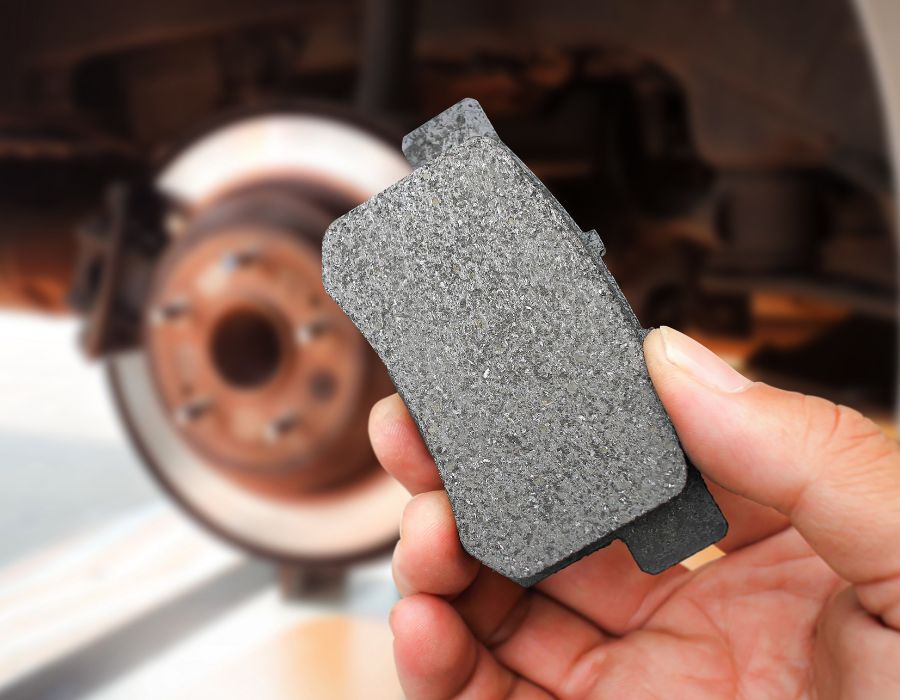
Seasonal Brake Considerations
Winter weather affects your brakes more than you might think. Salt and moisture can cause corrosion, while cold temperatures can affect brake fluid and pad performance. If you live in an area with harsh winters, having your brakes inspected before cold weather hits is smart preventive maintenance.
Summer driving, especially long trips or mountain driving, generates lots of heat. If you’re planning a vacation with mountain passes or heavy trailer towing, consider having your brakes checked beforehand.
What Happens If You Wait Too Long
Remember Jake’s story from the beginning? When brake pads wear completely through, the metal backing plate grinds against the rotor. This damages the rotor surface, requiring expensive replacement or resurfacing. What could have been a $200 brake pad replacement becomes a $600 job with new rotors.
Even worse, severely worn brakes can fail completely. We’ve seen vehicles where the brake pedal goes to the floor because the system overheated and failed. That’s not a repair bill you want to think about – it’s a safety issue that could affect you and other drivers.
Why Choose Our Brake Service
We’ve been keeping vehicles stopping safely in this area for over a decade. Our technicians are ASE-certified and use quality parts that meet or exceed manufacturer specifications. We don’t use cheap brake pads that wear out quickly or damage your rotors.
We also believe in honest diagnostics. If your brake noise is caused by something simple like dust or debris, we’ll tell you that instead of trying to sell you brake pads you don’t need. When you do need brake work, we explain exactly what’s wrong and why, so you can make informed decisions about your vehicle.
Schedule Your Brake Inspection Today
Don’t wait for grinding noises or brake failure to address brake problems. If you’re hearing squealing, feeling vibrations, or noticing longer stopping distances, give us a call. We offer free brake inspections and will give you an honest assessment of your brake system’s condition. Your safety and your family’s safety are worth that phone call.
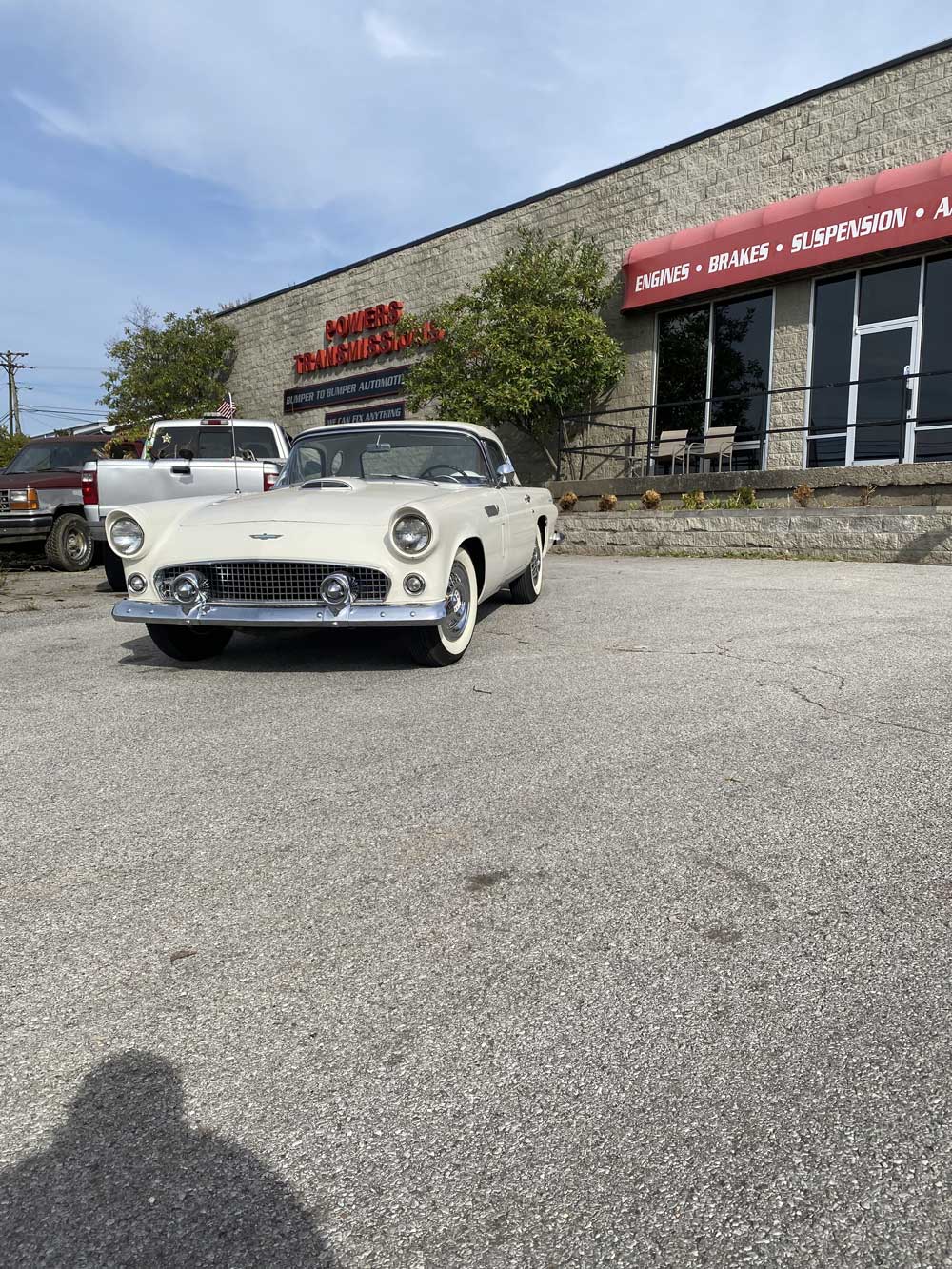
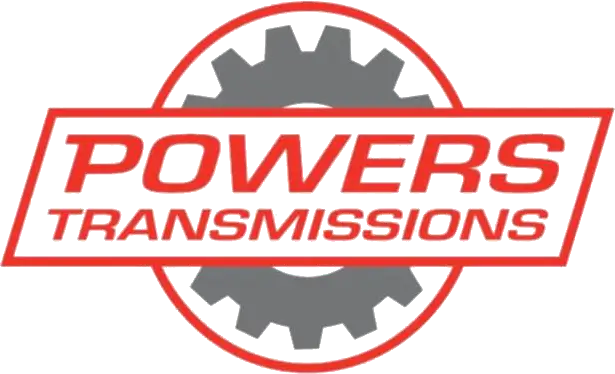
Areas We Serve
- Winchester Lexington
- Lane Allen Lexington
